Information for Patients
About Reverse referral
From medical consultation at Chiba University Hospital to transfer to local medical institution
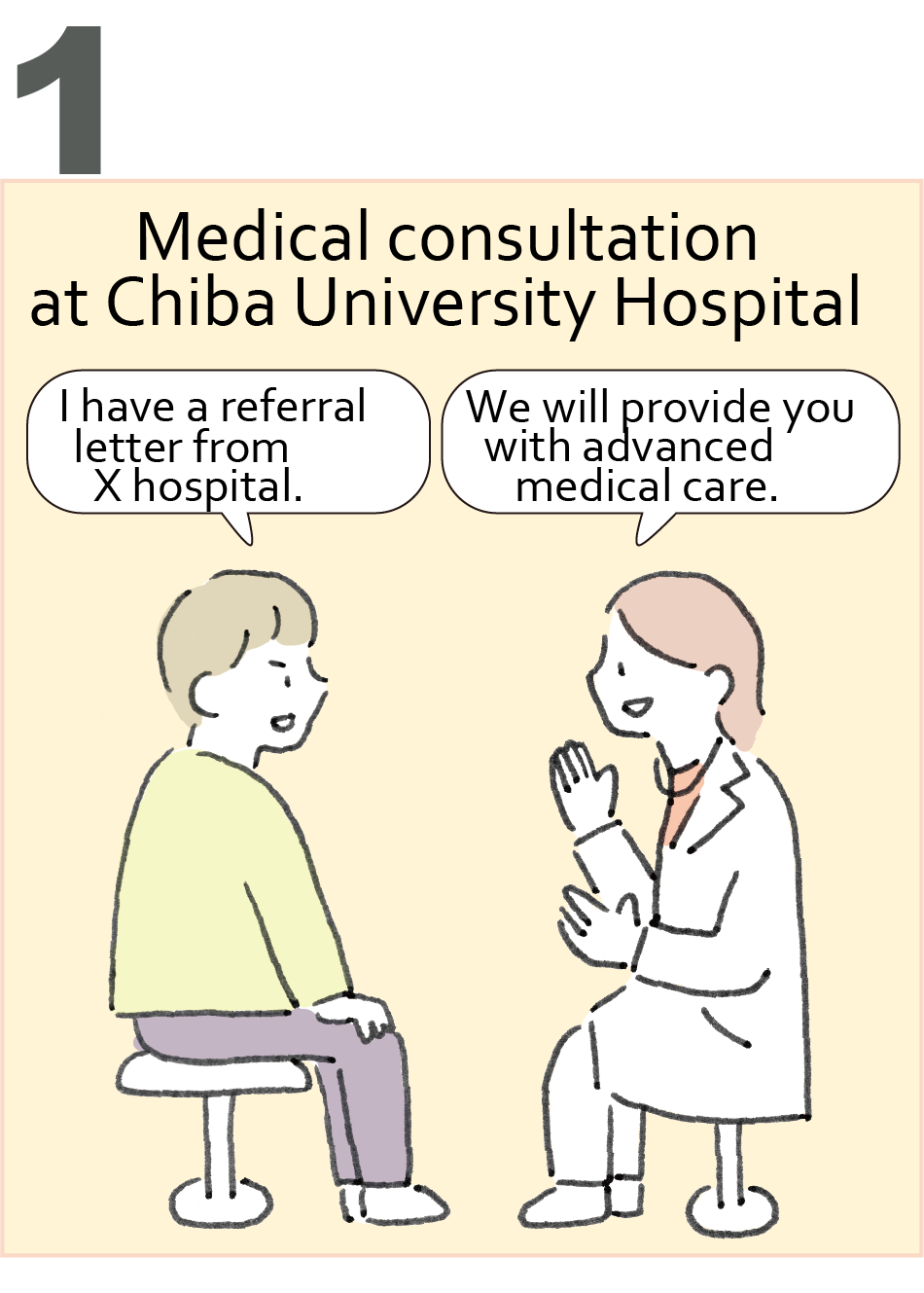
Medical consultation at Chiba University Hospital
Referral letter from another medical institution is required
In Japan, medical institutions share responsibility for delivering healthcare services to patients. Chiba University Hospital is designated by the Ministry of Health, Labor and Welfare as an advanced treatment hospital that is tasked with providing advanced medical care. Patients therefore need to obtain a referral letter from another hospital or clinic outlining their medical condition and treatment history before being treated at our hospital.
If you don't have any referral letter
For individuals who do not possess a referral letter, certain clinical departments within our facility can still offer medical consultation. However, it is important to be aware that there is a special first-visit fee of ¥13,200 (including tax), which is applicable under the "Medical Expenses Combined with Treatment Outside Insurance Coverage" system. Please understand that payment of this fee does not guarantee eligibility for medical consultation at our hospital.
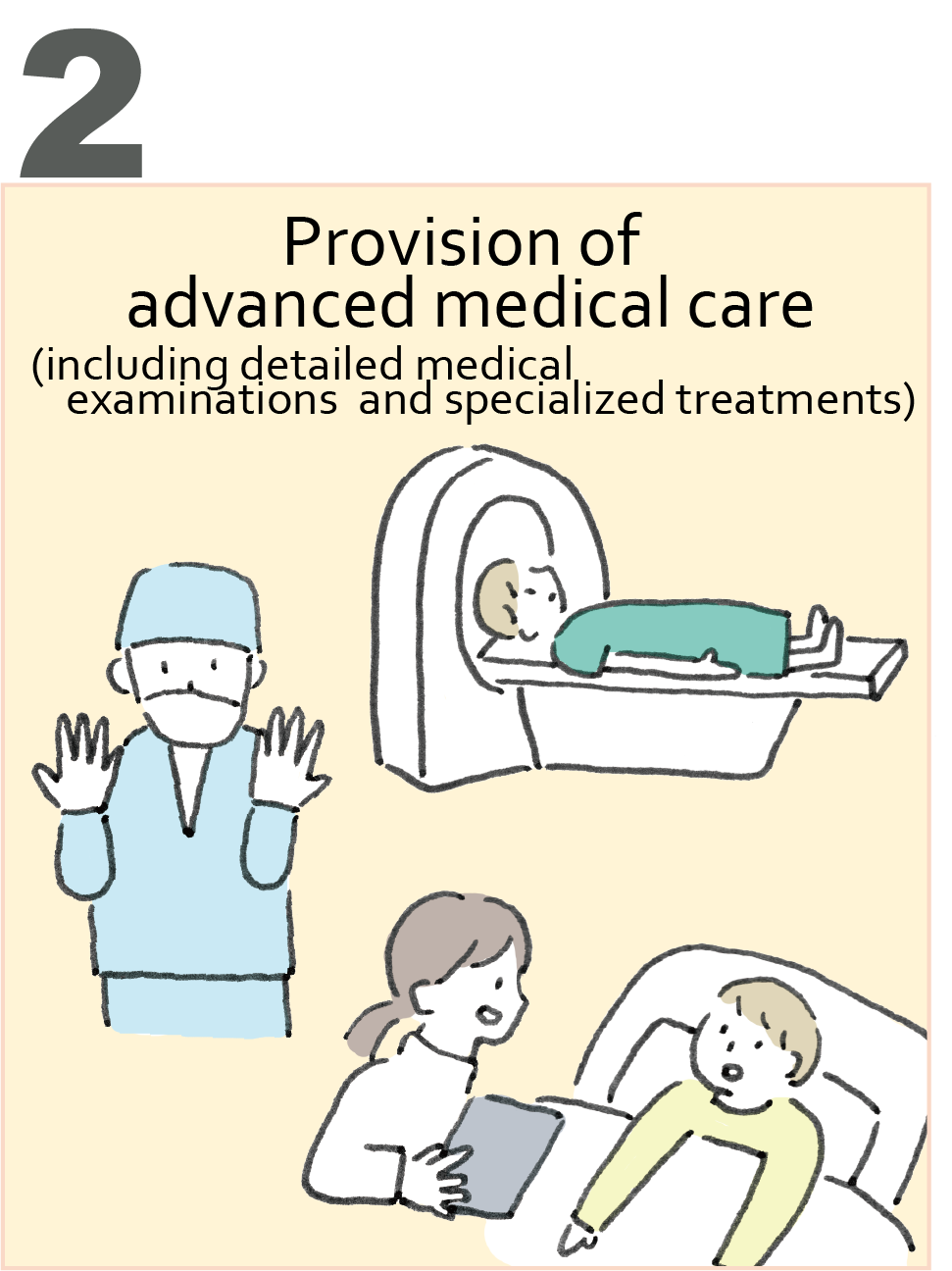
Provision of advanced medical care (including detailed medical examinations and specialized treatments)
Our hospital is in charge of treating patients requiring advanced acute care
Our hospital specializes in delivering advanced and intensive care to patients in an acute phase to swiftly stabilize their condition. To effectively fulfill its role, our hospital has 36 clinical departments as well as specialized wards, including those at the Emergency and Critical Care Center, intensive-care units, high-care units and neonatal intensive-care units.
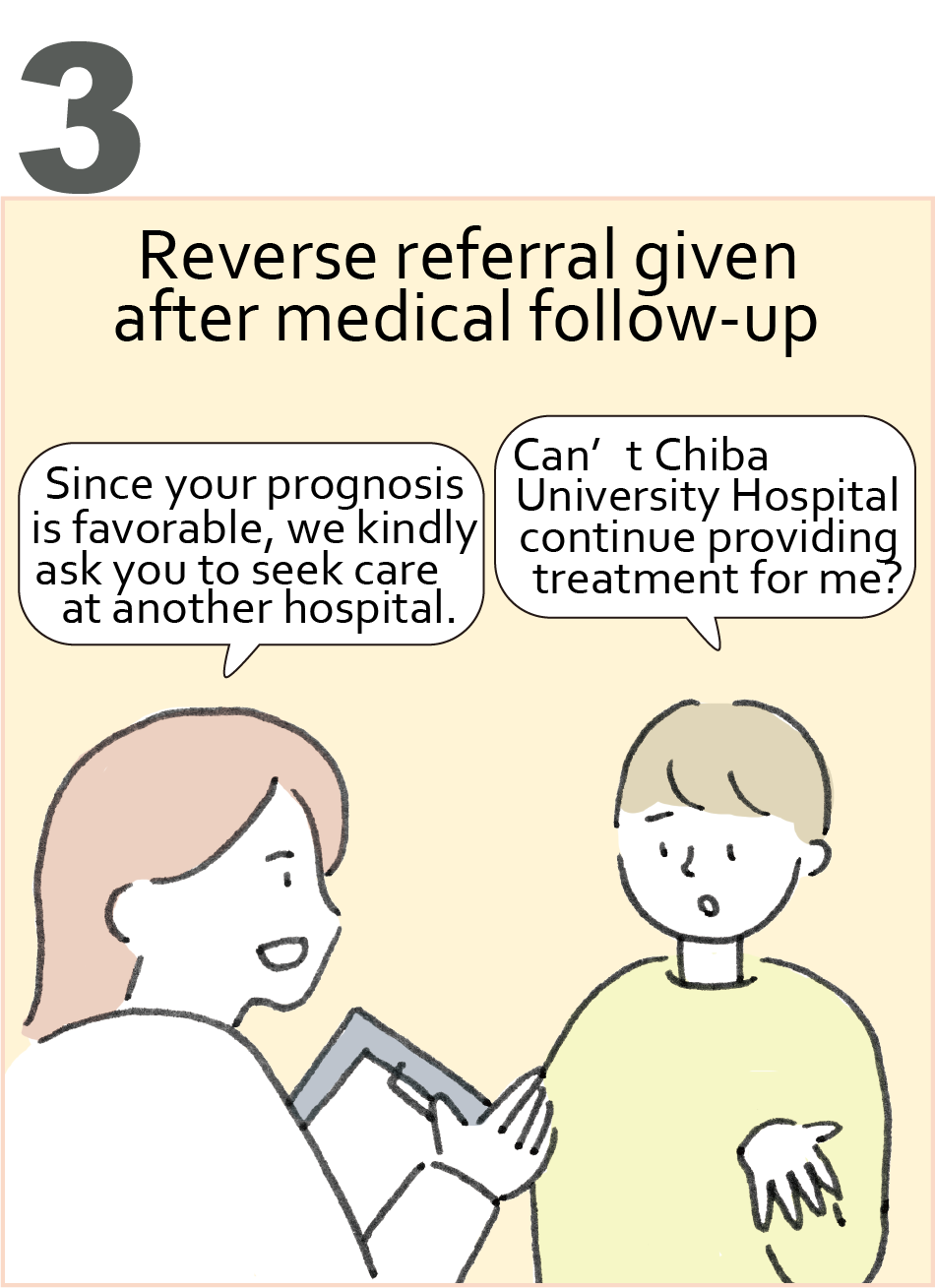
Reverse referral given after medical follow-up
Reverse referral for patients who no longer require advanced, acute care
We offer a reverse referral process for individuals who have progressed beyond the need for advanced acute care. Following a specified period of medical follow-up, we facilitate the transition to another appropriate medical facility. Depending on their condition, patients are directed toward one of three categories of medical institutions. Those continuing the treatment modality provided by our hospital are referred to institutions catering to patients in the acute phase. Patients requiring specialized rehabilitation are directed to institutions that focus on convalescent care. Similarly, individuals in a chronic phase requiring extended recovery are guided to facilities for long-term recuperation.
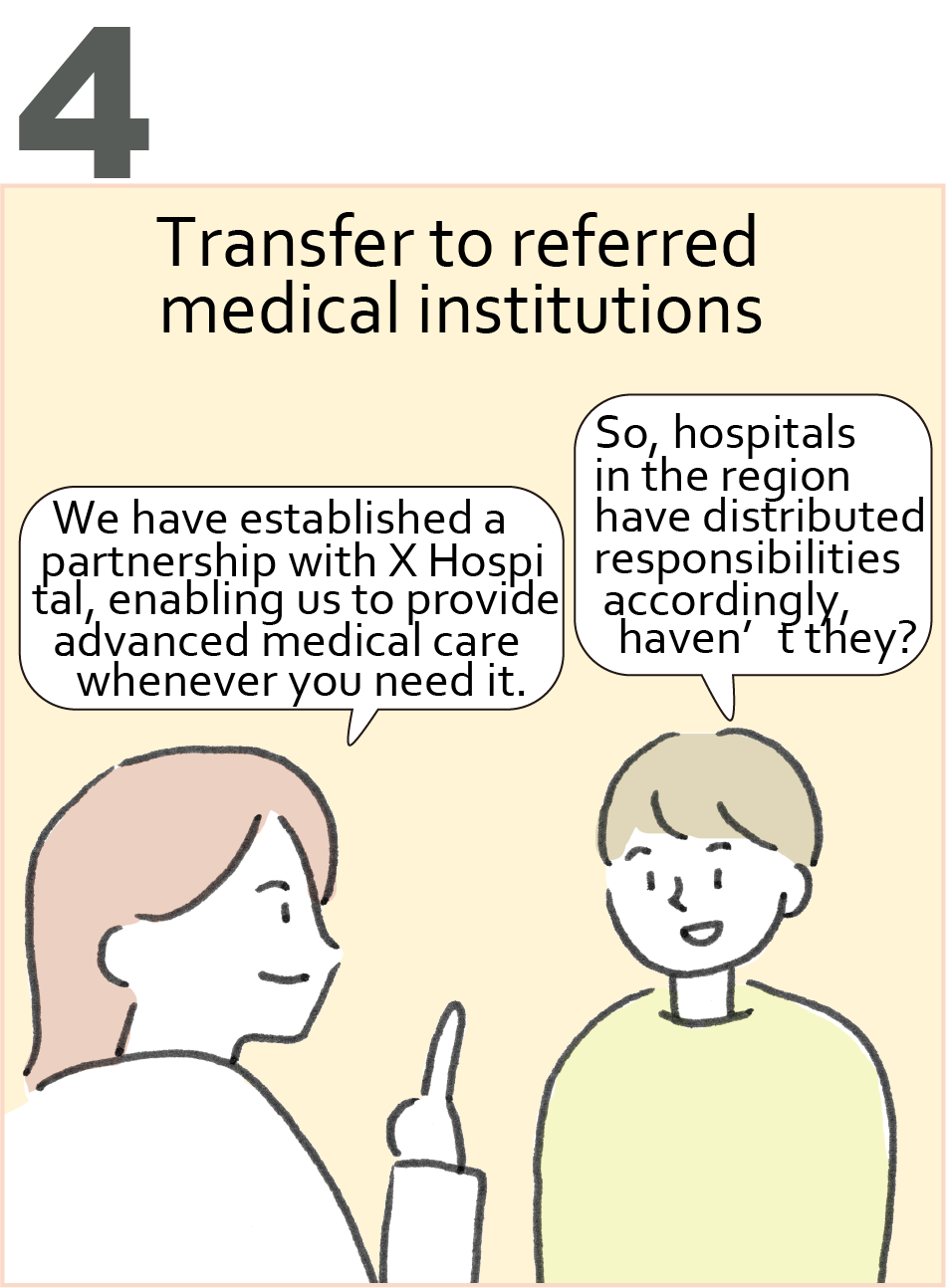
Transfer to referred medical institutions
Collaborative healthcare delivery with partner medical institutions
Individuals who have been referred to medical facilities as part of our reverse referral process should note that these institutions maintain a collaborative relationship with us. This ensures access to our advanced medical care whenever it is required. Even if you are undergoing treatment across multiple clinical departments within our hospital, seamless transfer to local medical institutions is facilitated on a department-by-department basis. To ensure that patients can receive the best medical advice and care, we provide consultations regarding hospital discharge and transfer arrangements, as well as post-treatment recuperation.
Please note that if a patient unilaterally decides to visit our hospital again despite our reversal referral to another hospital, we charge a special fee of ¥6,050 (including tax) applicable under the "Medical Expenses Combined with Treatment Outside Insurance Coverage" system, in addition to the normal medical fee.
Our reverse referral system ensures that patients are guided to the most suitable hospitals (wards).
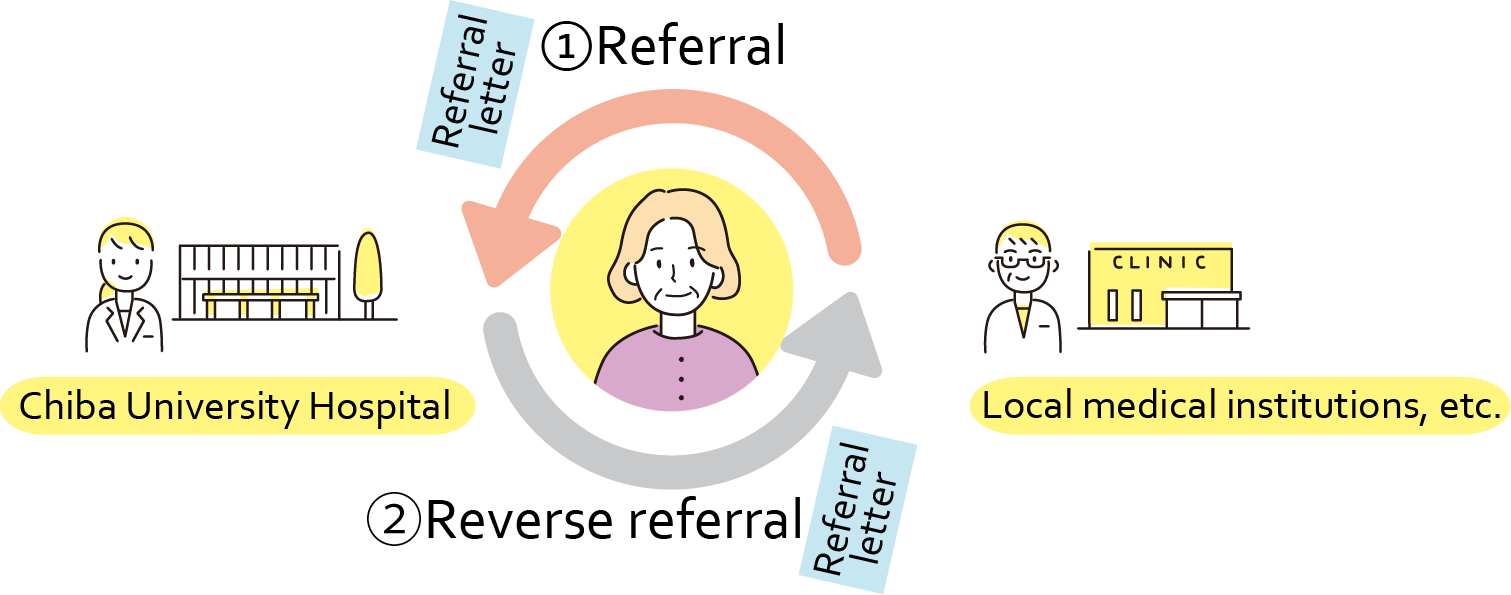
General wards
Patients continue receiving treatment consistent with our hospital's approach.
Convalescent-stage rehabilitation wards
Intensive rehabilitation is offered to patients recovering from conditions such as cerebrovascular incidents and other ailments.
Comprehensive regional care wards
Suitable medical care and rehabilitation are provided to patients who have transitioned home after being treated for acute-phase conditions.
Recuperation wards
Continued medical nursing as well as nursing care are provided for long-term recuperation.
Nursing facility
Accommodation, medical nursing and nursing care are provided for those in need.
Palliative care wards
Care is provided to alleviate pain and discomfort in patients with terminal illnesses, including cancer.

